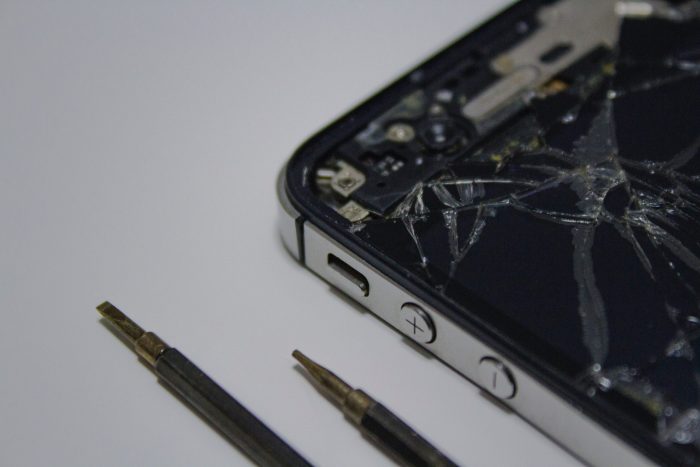An up-and-coming Omaha startup is advising iPhone users to think twice before swapping out their old or damaged devices for new ones.
Joshua Hample, co-founder and CEO of Omaha-based startup Certified Cell, says in many cases, defects that seem irreparable are actually fixable, though wireless carriers don’t necessarily want you to know that.
Hample said he did not realize until a few years ago that owners could swap out their dead or dying batteries for new ones—even though he had worked as VP of sales for Midwestern cell phone retailer Jet Mobile. That epiphany helped lead Hample to launch Certified Cell with co-founder and CTO Jason DeWater in 2018.
Certified Cell strives to provide buying power, safety and sustainability to the consumer by creating a certified pre-owned cell phone marketplace. Each used phone is vetted and certified through a 21-point inspection process and can either be shipped straight to the buyer or picked up that same day at one of Certified Cell’s 45 partner retailers around the country.
“We want to make sure that people can buy and sell phones the way they want to, in a safe way,” Hample said.
BECOME A SPONSOR
Join us in championing the narrative of success, resilience, and ingenuity that defines Nebraska’s startup community. Learn more »
Safety is a selling point Hample stresses. Even before COVID-19, taking the danger out of the peer-to-peer cell phone market exchange was one of the company’s foundational aims.
“Eighty million devices a year are being exchanged peer-to-peer, and most of those are exchanging cash in a parking lot,” Hample said. “And that’s terrifying.”
In fact, the day that Hample met DeWater—who since 2011 has owned and operated the technology repair shop iFixOmaha—a newspaper article about a stabbing in Omaha that took place in a parking lot over a used cell phone exchange.
But safety is not the only issue the company works to address. Hample and DeWater believe consumers deserve a measure of autonomy over the technology they use every day. They are advocates for the right to repair, a movement calling for companies to be more transparent about the technical details of the hardware they sell in order to allow customers to repair the devices they already own rather than submit to the cycle of planned obsolescence over which major brands such as Apple have run into controversy and lawsuits.
“(Phone manufacturers’) goal is not to let you know you can replace parts on phones, but to get people to trade them in and sell you a new phone,” Hample said.
This churn-and-burn approach does not sit well with him.
“It’s insane to buy a new phone just because your battery isn’t good,” he said. “If the batteries in your TV remote stopped working, you’re not going to go out and buy a new one. You’d swap the batteries out.”
The constant turnover of phones creates a lot of electronic waste, Hample said, and the shift in consumer sentiment toward a more positive outlook on used phones not only saves people money, it reduces their carbon footprint. At scale, such a trend has the potential to significantly curb e-waste.
It’s important to Hample that the company lives by its reduce-and-reuse principles.
“We technically have no footprint,” he said. “We partner with repair shops in other cities. We don’t actually have a brick and mortar location at all. We don’t even have an office space.”
Yet despite the pandemic, business is picking up. Hample said revenues have grown 100% year-over-year, and the company has already generated 250% more sales than at this time last year. And while the company is focusing exclusively on iPhones for now, they plan to expand into the Android marketplace soon.
We want devices in every state,” Hample said. “We want to find reputable repair partners in every state and have devices in their shops. It’s a big win for them, we’re driving traffic in their door and promoting the continuation of this brick-and-mortar model.”
—
This article features reporting by SPN contributor Matthew Robbins Case.



